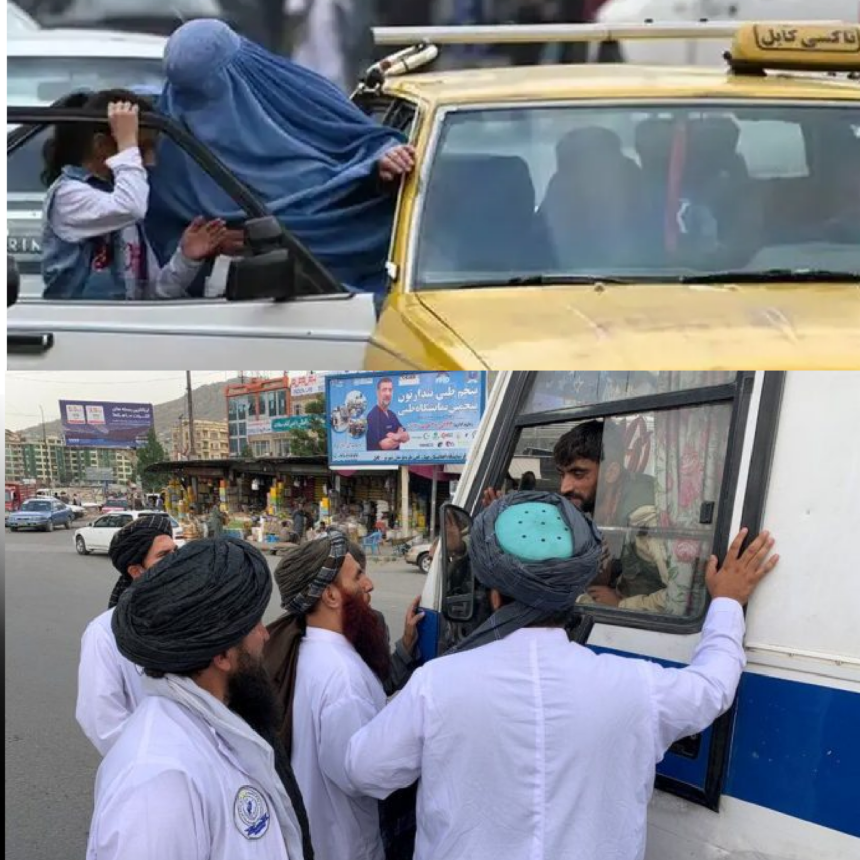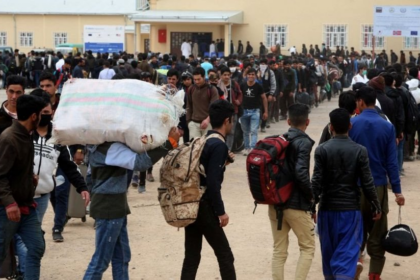RASC News Agency: Women and girls in Kabul say that newly enforced Taliban restrictions on their movement have turned even the most basic act of traveling into an ordeal. Public transportation once a lifeline for thousands of families has now become yet another arena where the regime exerts suffocating control over women’s lives.
According to Kabul residents, agents of the Taliban’s so-called Ministry for the Propagation of Virtue and Prevention of Vice, operating in tandem with armed police units, have placed unprecedented restrictions on women’s freedom of mobility. These directives, often imposed through harassment at checkpoints, have left drivers too fearful to pick up female passengers, effectively stranding women along city roads for hours.
Passengers describe the situation as humiliating and degrading. In public vans such as Hiace and Falancoach, only the back row is designated for women. In taxis, women are forced to bring a male guardian Mahram or risk being denied a ride. In some cases, drivers demand that unaccompanied women pay the full fare for all empty seats, a form of economic coercion that piles fresh hardship onto families already crushed by poverty. The Taliban’s ban on women’s employment outside the home has only intensified this injustice.
One Kabul woman recounted her ordeal while traveling to Deh Sabz district: “The driver agreed to take me without a male companion, but Taliban forces stopped us, interrogated him, and threatened us both. The driver was terrified, and I was treated as though I had committed a crime simply for traveling alone.”
This reality stands in stark contradiction to repeated claims by Taliban spokesmen, who continue to insist publicly that women do not require a guardian for short journeys inside the city. On the streets, however, the truth is unmistakable: Taliban patrols routinely stop and harass women, preventing them from moving freely even within their own neighborhoods. In some cases, women report being warned not to step beyond the entrance of their own homes without a male escort.
The crackdown has been formalized in decrees published by the Taliban’s Ministry of Justice, which explicitly instructs all drivers to refuse transport to women who are unaccompanied or not “properly veiled.” These orders, now distributed across Afghanistan’s major cities, have effectively criminalized women’s right to mobility. The directives have provoked outrage at home and condemnation abroad, with critics warning that they represent a systematic effort to erase women from public life.
Since seizing power in August 2021, the Taliban has pursued an unrelenting campaign to strip women of fundamental freedoms: banning education beyond the sixth grade, outlawing female employment across most public and private institutions, prohibiting women from entering parks, gyms, and recreational centers, and now, obstructing their ability even to travel. Each measure reinforces what international human rights experts have described as gender apartheid a deliberate policy of segregation and exclusion targeting half the nation’s population.
Despite mounting international pressure, Taliban leaders continue to issue hollow reassurances, insisting that women’s rights are being “protected under Sharia law.” For the women of Kabul, such pronouncements ring hollow. Their lived reality is defined not by rights or dignity, but by constant fear, coercion, and isolation under a regime that has reduced them to second-class citizens in their own country.






